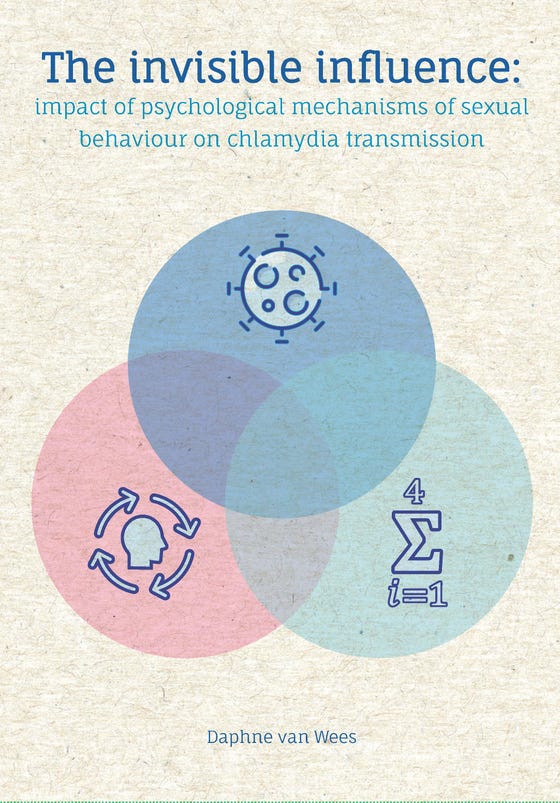Dec 17: Impact of psychological mechanisms of sexual behavior on chlamydia transmission

Chlamydia is a sexually transmitted infection and can cause long-term complications, such as reduced fertility. That is why the prevention of chlamydia is important, for example by using condoms. Whether people use condoms depends on psychological characteristics, such as risk assessment. Mathematical models are often used to predict chlamydia spread. Psychological characteristics and changes in them over time are rarely added to these types of models.
iMPaCT study
To get more insight in these variables the study "Mathematical models incorporating Psychological determinants: control of Chlamydia Transmission" (iMPaCT) "was carried out. Data on sexual behavior, psychological characteristics and STDs were collected from heterosexual men and women 18-24 years old, who visited a Center for Sexual Health (CSG) at four moments in a year.
Different characteristics
Psychological characteristics, including self-efficacy (confidence in one's ability to use condoms), social norms (assessment of what others do or think you should do), attitudes (attitude towards condom use), intentions (intention to use condoms) and impulsivity (degree of control over behavior) were found to distinguish different subgroups. These characteristics allow recognition of people who are at higher risk for chlamydia or in whom behavioral change is more difficult to achieve. Combining epidemiology, behavioral sciences and mathematical modeling resulted in a more accurate estimation of chlamydia risk. In addition, model results showed that behavioral interventions, such as increasing condom use, targeting psychological characteristics of subgroups can reduce the spread of chlamydia. This provides valuable information to improve chlamydia prevention in the CSG.
PhD defense
Daphne van Wees (1991) defended her PhD thesis on December 17, 2020 at Utrecht University. The title of her thesis was “The invisible influence – Impact of psychological mechanisms of sexual behaviour on Chlamydia trachomatis”. Supervisors were prof. dr. Mirjam Kretzschmar (Mathematic Modelling Group, Julius Center for Health Sciences and Primary Care, UMC Utrecht). Co-supervisors were dr. Chantal den Daas and dr. Janneke (both National Institute for Public Health and the Environment, Bilthoven). In February 2020, she started working as a postdoctoral researcher at UMC Utrecht and is involved in projects into risk- and sexual behavior associated with HIV risk among men having sex with men.

